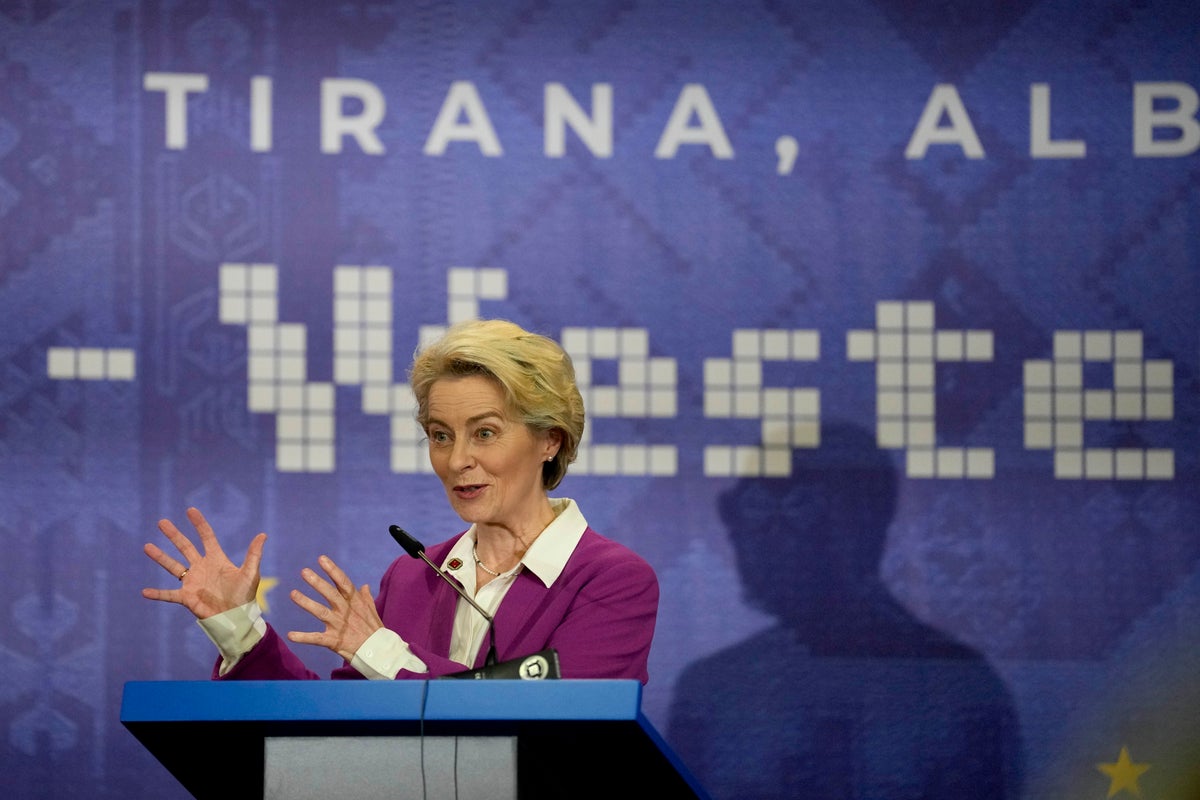
The European Union on Wednesday proposed travel bans and asset freezes on almost 200 more Russian officials and military officers as part of a new round of sanctions aimed at ramping up pressure on Moscow over its war in Ukraine.
The proposals were made by the EU’s executive branch, the European Commission. They must still be debated and endorsed by the 27 member countries, a process that routinely results in the commission's suggestions getting watered down.
The targets of the latest recommended sanctions include government ministers, lawmakers, regional governors and political parties.
“This list covers key figures in Russia’s brutal and deliberate missile strikes against civilians, in the kidnapping of Ukrainian children to Russia, and in the theft of Ukrainian agricultural products,” European Commission President Ursula von der Leyen said in a statement.
With a fresh raft of sanctions, the commission also intends to target the Russian defense industry and more Russian banks, and to impose export controls and restrictions on products like chemicals, nerve agents, electronics and IT components that could be used by the armed forces.
This would include “a full transaction ban on the Russian Regional Development Bank to further paralyze Putin’s cash machines,” von der Leyen said.
The EU also hopes to disrupt Russia’s access to unmanned aerial vehicles.
“We propose to ban the direct exports of drone engines to Russia and the export to any third countries, such as Iran, which could supply drones to Russia,” von der Leyen said.
In addition, the European Commission is recommending that EU members take action against Russia's energy and mining sectors, including with a ban on new mining investments, and that they move to take more Russian TV stations off the air in Europe.
“After food and hunger, Putin now decided to weaponize the winter. He wants to disrupt electricity, heating and water supplies for millions of civilians across Ukraine," EU foreign policy chief Josep Borrell tweeted. "We are responding with the ninth package of sanctions against those who are instrumental in this brutal war.”
The commission has devised several rounds of sanctions against Russia since Putin launched an invasion of neighboring Ukraine in February. Banks, companies and markets have been hit — even parts of the sensitive energy sector – and over 1,200 officials were subject to asset freezes and travel bans.
But the economies of the EU’s 27 member countries, already battered by the COVID-19 pandemic, are now struggling rising inflation, and high electricity and natural gas prices. New sanctions are getting harder to get approved as they also inflict a price at home.







